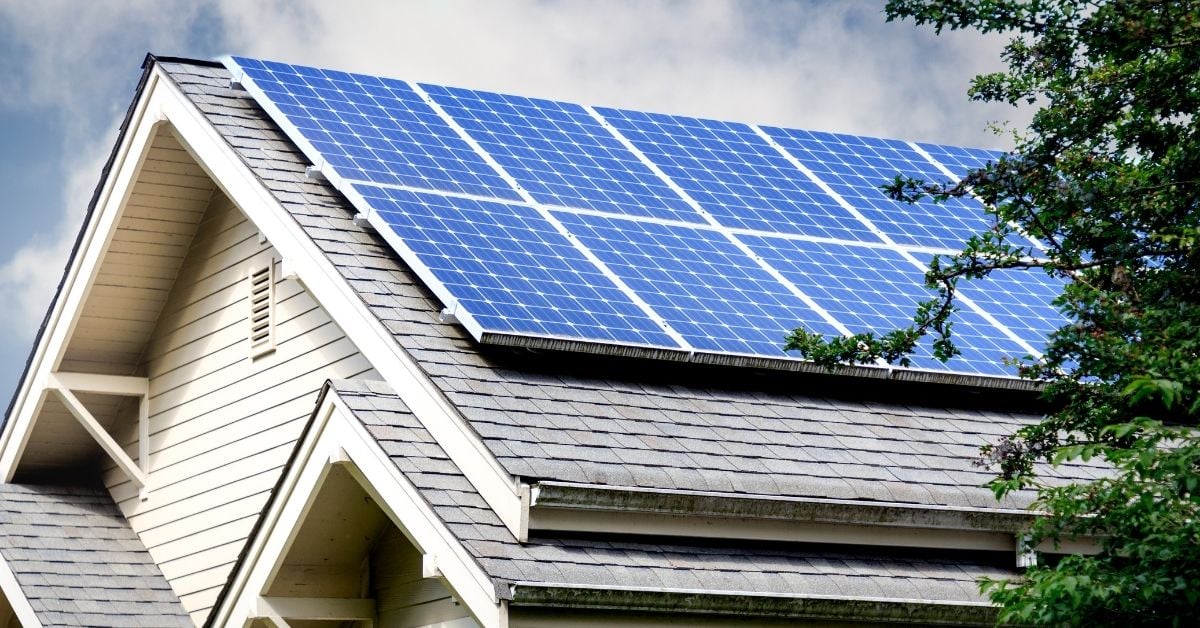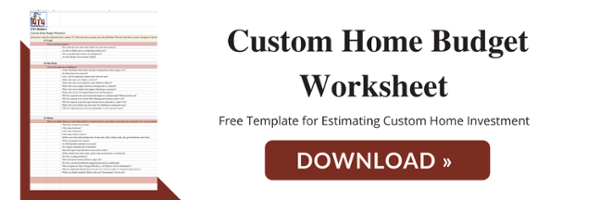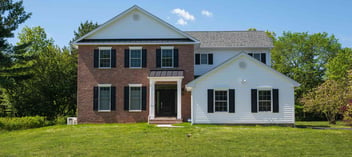3 Min Read
7 Energy Efficient Materials to Use in Your New Custom Home
When you start to imagine your dream home, you might be surprised how much energy efficiency plays a part in your comfort. It’s not just about your utility bills. An inefficient home doesn’t stay warm or cool consistently, which means you have to use equipment more often to maintain a level of contentment. By comparison, an efficient home saves money, uses less energy, and provides every bit as much comfort. Start by considering these energy-efficient building materials.
What Are the Best Materials to Build an Energy-Efficient Home?
Making important choices about your home is one of the first steps of building a custom home. Although you might focus on things like the countertops and flooring, it’s wise to think about energy efficiency, too. Here are a few building materials that are known to decrease a building’s energy consumption, and they may work well in your home.
1. Zip Board Sheathing
ZIP System sheathing is a unique approach to providing a tight, water-resistant, energy-efficient seal for the home. The system includes boards that already have a water barrier built-in, which makes the process of installing easier, quicker, and more accurate. Want to know what goes into the custom home building process? We can show you our professional approach.
2. Tankless Hot Water Heater
Installing a tankless water heater is a great way to minimize wasted space in your mechanical closet, plus saving you energy. Tankless water heaters provide a boost of energy when you turn on the tap, delivering a constant stream of hot water. Since there’s no tank, the hot water never runs out. And you won’t waste energy keeping the tank warm around the clock.
3. Spray Foam Insulation
For your New Jersey property, insulation is one of the best ways to make your home more energy-efficient. The trick is to choose the right kind of insulation. For the attic where you lose the most heat, spray foam is an excellent choice. It’s better at filling the space than rolls or batts, and it’s easy to install. And if you ever decide that you need to add more, later on, it’s just as simple to increase.
4. Rigid Foam Board Insulation
Rigid foam boards can be used in a number of ways to help increase the efficiency of your home. IN New Jersey it is most commonly used to create thermal breaks. Using rigid foam board insulation underneath your slab protects it from the heating or cooling of the earth below. It also locks out moisture and insects as a bonus.
5. LED Lighting
LED lighting is not typically thought of when it comes to improving a home's efficiency. However, LED lighting can use at least 75% less energy and last much longer than incandescent lights. LED lights emit light without the need for reflectors resulting in a majority of the light being sent in a specific direction. A bonus for homeowners is the large range of colors LED lights come in these days- ranging from bright white to yellow, to daylight.
6. Roll on Flashing
In New Jersey, we have varying temps that go from extreme cold to extremely hot, sometimes without warning. A major energy-efficient practice is using roll-on flashing around all windows and penetrations. Creating tight seals with roll-on flashing helps reduce air loss making your AC and heating more efficient.
7. High-Efficiency Windows
While roll-on flashing protects air loss around windows, the windows used in your home can affect how energy efficient your home is. Windows need to prevent heat from escaping in the cold months, while also blocking heat from sunlight in the warmer months. Not every window is created equally, therefore when selecting windows, choose one that best suits the fluctuations in the NJ climate so you are increasing energy efficiency year-round.

What Is the Most Energy Efficient Way to Build a House?
There are many approaches to building a home that make it incredibly energy-efficient. For example, building a passive house uses a variety of building styles and technologies to create a tightly-sealed building envelope that dramatically lowers your energy usage. Others aim to create sources of energy (e.g. solar panels) that minimize your energy consumption on the grid. You’re welcome to take these ideas and incorporate them into your home plans as it works for you.
Not sure what to expect when building a home? Download our free custom home guide.
What Is the Best Foundation for an Energy-Efficient House?
The best foundation for an energy-efficient house depends on the build lot and a few other factors. These days, many builders rely on things like insulated concrete forms and structural insulated panels in the creation of a foundation. These additions to a concrete foundation use significantly less energy, in part because they provide better insulation.
How to Choose the Best Eco-Friendly Building Materials for Your Home?
One of the best ways to ensure that you get the right materials for your home is to hire a custom home builder with the experience to put them to good use. At GTG Builders, we stay current on the latest building technologies, including sustainability and energy efficiency. We hire architects and designers who have familiarity with the best practices for energy-efficient building so that you get a home that is most likely to meet your expectations.




